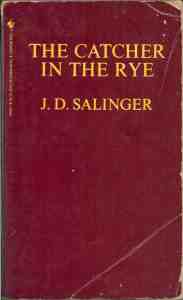
Louise Erdrich
Faith Might be Stupid, but it gets us Through
(Part 2)
Erdrich uses Lipsha’s preposterous theology to demonstrate how “Christianity has helped destroy the traditional Ojibwa religion but has not replaced it as the center of Ojibwa life.” (Vecsey 58) No Christian who believes in an omnipotent God could entertain the thought that He might be hard of hearing. But the alcoholism, disease, subjugation and extermination which has accompanied the white man’s conquest of the Ojibwa led many to question the power of their original gods. Erdrich uses the irony of a “deaf God” to reveal the spiritual abandonment that many Ojibwa feel.
While Erdrich clearly enjoys joking about the deafness of the Christian God, the preponderance of Christian references and imagery throughout Love Medicine creates an ethereal, almost otherworldly atmosphere. Yet Erdrich maintains that she is not a “Catholic” writer. She has stated in an interview that she writes about Catholicism in order to “exorcise” it from her system (Purdy 94). But the Christian symbolism woven so intricately into the fabric of Love Medicine betrays an ambivalence to Catholicism which Erdrich seems less than willing to acknowledge. There is even room for some reviewers to discern a hint of Christian allegory in Love Medicine:
Given all the obvious Christian references here, one might feel the urge consider to June a “Christlike” figure, one who has been sacrificed to the sins of history (Purdy 87) .
Although Love Medicine is obviously not a Christian allegory in the sense that, say, Crime and Punishment is, the overabundance of biblical images is obviously not arbitrary: Characters walk on water, wear crowns of thorns, and even achieve “sainthood”. And many of the chapter headings–Saint Marie, Flesh and Blood, Crown of Thorns, Resurrection and Crossing the Water evoke Christian imagery. But what effect is Erdrich trying to achieve here?
The last sentence of the first chapter reads: The snow fell deeper than it had in forty years, but June walked over it like water and came home (7). Later in the novel a character named Moses walked across the lake and appeared in town (75). These are clearly references to Christ. But they are not the kind of images which would bring comfort to pious readers. Instead, Erdrich assaults Christian sensibilities by comparing these two sinful, lascivious heathens to Christ.
Erdrich forges her most vigorous assault against the Catholic Church in the depiction of the struggle between “St. Marie” Lizarre and Sister Leopolda. This conflict can be viewed as a microcosm of the missionary enterprise. The sadistic nun who burns, beats and cuts an innocent Indian girl embodies the worst excesses committed against the Ojibwa by the Catholic Church. But Marie is determined to endure Leopolda’s torment in order to achieve sainthood despite her inferior status as an Indian girl who possesses a “mail-order Catholic” soul (44). Marie uses her guile to convince the nuns that the wound on her hand which she received from Leopolda is actually the result of a “holy vision” (60). The irony of Marie’s duplicitous achievement exposes Erdrich’s hostility for the Catholic Church. Despite Erdrich’s angry tone, however, the impact of Catholicism upon Erdrich and her characters is not easily dismissed. The cogent Catholic imagery in Love Medicine and the manner in which it shapes the lives of the Ojibwa in the novel attests to durability of faith, even in the minds of professed nonbelievers.
Erdich is certainly not a Catholic writer such as Flannery O’Connor who succumbs to the glorious masochism. But Erdrich wrestles with God in much the same manner as that oddly sincere Catholic writer, Graham Greene. The ridiculous yet compelling nature of Erdrich’s literary Catholicism reminds us of so many of Greene’s hopelessly flawed creations who tragically, and often comically, grope after grace.
Curiously, it is in the often ludicrous theology of Lipsha Morrissey where we find Erdrich’s most eloquent declarations on religion:
I thought how we might have to yell to be heard by the Higher Power, but that’s not saying he’s not there. And that’s faith for you. It’s belief even when the goods don’t deliver. Higher Power makes promises we all know they can’t back up, but anybody ever go and slap a malpractice suit on God? (245)
The incongruity of these words being delivered by the same person who substitutes the hearts of frozen turkeys for goose hearts in his love potion is striking. The irony here is that this persuasive testimonial of faith is delivered by someone whose actions rarely demonstrate any real religious convictions.
Native Americans have every reason to deny the existence of God. The most heinous crimes–murder, rape, larceny, and genocide–have been perpetrated against them in His name. And their indigenous gods were helpless against this onslaught. Yet faith, albeit “stupid” faith, persists in the minds of Louise Erdrich’s Ojibwa.
The various manifestations of God in Love Medicine, Catholic, Ojibwa and syncretic combinations thereof, are the results of Erdrich’s attempt to make sense out of her experiences. The people she portrays are, like all of us, both heroic and absurd, as are their explanations of God.
by Richard W. Bray
Endnotes
Erdrich, Louise. Love Medicine. New York: Henry Holt and Co., 1993.
Purdy, John. Building Bridges: Crossing the Waters to a Love Medicine”, Teaching American Ethnic Literature Maitino and Peck, eds. Albuquerque, University of New Mexico Press, 1996.
Vecsey, Christopher. Traditional Ojibwa Religion and Its Historical Changes. Philadelphia: The American Philosophical Society, 1983.











